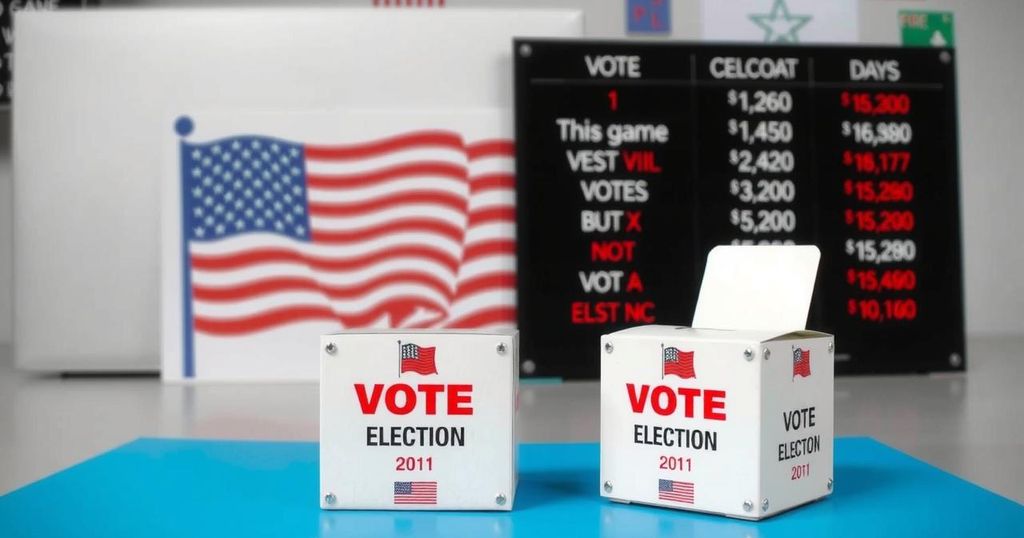Georgia’s Election Results Under Scrutiny Amid Opposition Claims

Georgia’s recent elections have sparked controversy with claims of voter fraud by opposition parties, contrasting with the ruling Georgian Dream’s asserted landslide victory. Exit polls suggest a majority for opposition parties, raising doubts about the official results announced by the Central Election Commission. With indications of electoral violence and intimidation, concerns about the integrity of the election process have prompted calls for independent investigations. This situation reflects wider global struggles with democratic practices amid a backdrop of rising authoritarianism and geopolitical tensions.
On October 26, Georgia held significant elections, the most consequential since 2003, amid allegations of voter tampering from opposition parties. The ruling party, Georgian Dream (GD), announced a claimed resounding victory, with Prime Minister Iralki Kobakhidze asserting a “landslide” win despite exit polls suggesting otherwise. These polls indicated that the opposition coalition gathered 51.9% of the votes as opposed to GD’s reported 56%. Scrutiny of these results intensified due to reports from the Central Election Commission (CEC), perceived as overly aligned with the ruling party, and widespread electoral violence.
The credibility of the electoral process came under threat due to accusations of voter intimidation and irregularities prior to and during the elections. A coalition of independent observers, My Vote, indicated that conditions were unfavorable for a fair voting process, and discrepancies between official figures and opposition data were noted. In a BBC interview, Prime Minister Kobakhidze acknowledged the presence of irregularities but maintained that the overall conduct of the elections conformed to democratic standards. This assertion, however, stands in stark contrast to remarks made by former EU ambassador Eklund, who emphatically criticized the electoral environment.
Globally, 2023 marked a notably tumultuous year for elections, with significant instances of electoral violence and democratic decline across multiple nations. Georgia’s scenario is among the critical examples alongside Venezuela’s election situation. The international community recognizes that governments promoting voter violence undermine democratic principles, necessitating accountability and thorough investigations into claims of fraud. Election observer efforts remain vital in ensuring the integrity of democratic processes worldwide.
For the past twelve years, Georgian Dream has held power, using the context of the ongoing Ukrainian conflict to amplify fears regarding the opposition’s capability to maintain peace. Following the arrest of its European aspirations due to anti-Western sentiments and controversial legislation, the political landscape in Georgia grows increasingly complex. The ruling party’s founder, Bidzina Ivanishvili, has made statements questioning the legitimacy of opposition forces, further indicating a potential drift towards Moscow’s influence. Following these elections, such a trajectory appears increasingly likely.
The recent elections in Georgia occur against a backdrop of potential shifts in international relations and internal governance challenges. Since achieving independence, Georgia has navigated a precarious political landscape influenced by its historical ties with Russia and aspirations for European integration. The ruling Georgian Dream party has been at the center of heated debates over democratic processes, electoral integrity, and its stance towards the West amidst a rising tide of populism and geopolitical tensions, especially in light of the ongoing conflict in Ukraine. This political scenario raises concerns about democratic backsliding and increasing authoritarian tendencies, which have garnered the attention of international observers.
The electoral landscape in Georgia showcases significant challenges to democratic processes, highlighted by allegations of voter fraud and intimidation. The ruling Georgian Dream party’s claimed victory comes under scrutiny due to conflicting exit poll data and concerns over electoral integrity. Global parallels of electoral violence and democratic erosion are evident, emphasizing the need for robust scrutiny and accountability in electoral practices, alongside the essential role of independent observers. As Georgia navigates its political path forward, the implications of these elections will reverberate across the region’s geopolitical dynamics.
Original Source: theowp.org







